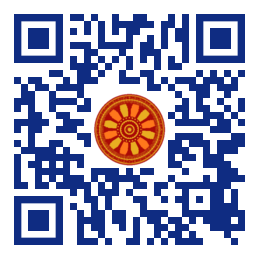
:: International Transaction Journal of Engineering, Management, & Applied Sciences & Technologies
http://TuEngr.com

ISSN 2228-9860
eISSN 1906-9642
CODEN: ITJEA8
FEATURE PEER-REVIEWED ARTICLE
Vol.13(3) (2022) |
The Ingredients for the Success of Knowledge Management Application in Supporting Investment in Saudi Universities According to the Vision of the Kingdom of Saudi Arabia 2030
 Mohammad Jafar Arif , Ahmed Mohammed Al-Zahrani (King Abdulaziz University-Jeddah SAUDI ARABIA)
Mohammad Jafar Arif , Ahmed Mohammed Al-Zahrani (King Abdulaziz University-Jeddah SAUDI ARABIA)
Disciplinary: Management Science.
doi: 10.14456/ITJEMAST.2022.62
Keywords: intellectual capital investment; investment planning; investment decision making; knowledge investment; partnership support
AbstractPublic sector organizations in Saudi Arabia face a lack of government support for the use of new technologies, a lack of awareness of knowledge, and a lack of leadership support. Accordingly, the current study seeks to verify The Ingredients for the Success of Knowledge Management Application in Supporting Investment in Saudi Universities in accordance with the Kingdom's vision 2030. The study used the descriptive survey method, which depends on reviewing previous literature on the subject of the study, analyzing its results, in addition to reviewing records and documents related to the employment of universities for knowledge management and its impact on its investment, in addition to preparing a questionnaire tool that achieves the objectives of the study and answers its questions. Content analysis was used. The study reached several results, the most important of which are: Many ingredients must be met for the success of the application of knowledge management in supporting investment in Saudi universities according to the vision of the Kingdom of Saudi Arabia 2030. Focusing on efforts to support innovation in Saudi universities through the formation of knowledge experiences that support innovation, emphasizing the provision of products that meet customer expectations, and encouraging and experimenting with new ideas.Paper ID: 13A3T
Cite this article:
Arif, M.J., Zahrani A.M.A. (2022). The Ingredients for the Success of Knowledge Management Application in Supporting Investment in Saudi Universities According to the Vision of the Kingdom of Saudi Arabia 2030. International Transaction Journal of Engineering, Management, & Applied Sciences & Technologies, 13(3), 13A3T, 1-10. http://TUENGR.COM/V13/13A3T.pdf DOI: 10.14456/ITJEMAST.2022.62
References
- Banga, T. A.-Z. H., and Saad, S. A.-R. (2019). Requirements for the application of knowledge management in secondary schools from the point of view of educational leaders in the city of Tabuk. Generation Journal of Humanities and Social Sciences, 49.
- Boushouha, N., and Makkid, A. (2014). The role of knowledge management in enhancing the performance of the institution. Journal of Economic and Financial Studies: University of Martyr Hama Lakhdar El Wadi - Faculty of Economic, Commercial and Management Sciences, 1(7), 146-162.
- Al-Tilbani, N., Badir, R. and Al-Raqb, M. (2015). Knowledge management requirements in Palestinian universities in the Gaza Strip. Jordanian Journal of Business Administration, 11(2).
- Al-Hakim, A. A. M., and Al-Flayt, K. A. (2020). The impact of technical and security employment for electronic management on knowledge management processes in Palestinian universities: an applied study on the Islamic University - Gaza - Palestine. Al-Isra University Journal of Human Sciences: Al-Isra University, (9), 189-211.
- Hussein, M. F. A. F., and Ali, M. M. H. (2015). A proposed conception for the development of intellectual capital management at the University of Tabuk in the light of the knowledge economy. Journal of Education: Al-Azhar University - College of Education, 3(116), 750 - 827.
- Sharif, M. S. B. (2016). Investing the Scientific Endowment in Saudi Universities: The King Fahd University of Petroleum and Minerals Endowment Fund as a model. Bait Al-Mashura Journal: Bait Al-Mashura Financial Consulting, 4, 69 - 93.
- Talal, S. (2014). The reality of the application of knowledge management in the light of contemporary transformations in Saudi universities from the point of view of academic leaders with a proposal for a vision for its application: an applied study on the universities of Umm Al-Qura, King Abdulaziz, Taif, Al Baha. Education World, 15-129.
- Nasser, E. H. (2016). Private investment in higher education: Iraq a case study. Master's thesis, University of Al-Qadisiyah.
Other issues:
Vol.13(3)(2021)
Vol.13(2)(2021)
Vol.13(1)(2021)
Archives
Call-for-Papers
Call-for-Scientific PapersCall-for-Research Papers: ITJEMAST invites you to submit high quality papers for full peer-review and possible publication in areas pertaining engineering, science, management and technology, especially interdisciplinary/cross-disciplinary/multidisciplinary subjects.
To publish your work in the next available issue, your manuscripts together with copyright transfer document signed by all authors can be submitted via email to Editor @ TuEngr.com (no space between). (please see all detail from Instructions for Authors)
Publication and peer-reviewed process:
After the peer-review process (4-10 weeks), articles will be on-line published in the available next issue. However, the International Transaction Journal of Engineering, Management, & Applied Sciences & Technologies cannot guarantee the exact publication time as the process may take longer time, subject to peer-review approval and adjustment of the submitted articles.